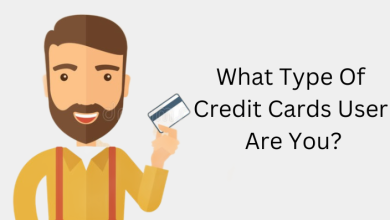Is Refinancing an FHA Loan to a Conventional Loan the Best Option for You?

If you have an FHA loan, you may be able to refinance it to a conventional loan. This would allow you to avoid the monthly mortgage insurance premium (MIP) required with an FHA loan. It might also lower your interest rate and monthly payment.
Before you decide to refinance, you should compare the costs of refinancing to the savings you would receive. Florida mortgage companies can help you determine if refinancing is the best option.
This post will help you understand whether or not refinancing is the best option for you.
Can You Refinance an FHA Loan into a Conventional Loan?
You might wonder if it’s possible to refinance from an FHA loan to a conventional loan when comparing conventional loan rates.
Yes, you can obtain a conventional mortgage if you fulfill the requirements for approval. Typically, a credit score of 620 and a debt-to-income (DTI) ratio of 43 percent are required. Also, several other criteria have to be met, including evidence of your income and ability to pay back the loan.
When Is It a Good Time to Convert an FHA Loan to a Conventional One?
It’s important to remember that just because you’ve been approved for a new loan doesn’t imply you should refinance. Here are a few reasons why you may want to change from an FHA loan to a regular mortgage:
- Your credit score has improved much since you took out your FHA loan. Your credit score was 600 when you first took out a loan. It has now risen to 670 years. That’s a big difference that can help you get a cheaper loan.
- Rates have dropped significantly. For example, if you have a 5.1 percent loan and can get a new rate of 4 percent, that may offer a large discount throughout your loan.
- You’ll be there for long enough to recoup your closing costs. If you don’t intend to reside in your house and your existing loan has a long time left, a standard refinance may be an excellent option. However, if you want to relocate in the next few years, refinancing may not be worth it because you may not have enough time to recover your costs.
Pros of Refinancing an FHA Loan to a Conventional Loan
One of the primary benefits of refinancing from an FHA loan to a standard loan is that it is one of the few methods to eliminate FHA mortgage insurance. FHA mortgage insurance is required on all FHA loans with less than a 20 percent down payment. The monthly premium is expensive, and it also adds up over the life of the loan.
With a conventional loan, once your outstanding balance reaches 80% of the home’s original value, you can get rid of private mortgage insurance (PMI). This option is not available with an FHA loan.
Another benefit of a conventional loan is that the interest rates are usually lower than those on an FHA loan. This can help you save money over the life of your loan, and it may make your monthly payments more affordable.
If you take out an FHA loan and then refinance to a conventional loan and must pay mortgage insurance owing to your equity level, you may discover that the premium is more now than it did while taking out an FHA loan.
Refinancing to a conventional loan allows you to shop around for the best interest rates. However, an FHA streamline refinances only enables you to refinance with your current lender. As a result, you’re stuck with the interest rate you agreed to when you took out your original FHA loan.
A final consideration is that you can refinance it as many times as you want if you have a conventional loan. However, with an FHA loan, you’re limited to only two refinances during the life of your loan.
Cons of Refinancing from FHA to Conventional
When you take out a conventional refinance, the interest rates are typically lower than FHA refinance rates. However, if you switch to this new type of loan, there are drawbacks. Consider these disadvantages:
- You could still be paying mortgage insurance for a while: The PMI payments will add up, so ask a lender for an estimate of how much your premiums would be if you haven’t yet reached the 80 percent mark.
- You’ll have to pay closing charges: Refinancing isn’t cheap. Closing costs will be incurred, which can strain your budget. Depending on the size of your loan and the value of your home, these costs can be as high as 5 percent of the total loan amount. If your mortgage lender allows it, you may be able to combine these fees with your loan; however, doing so will result in an increased sum owing interest.
- You may end up with a higher interest rate: If rates have risen since you first took out your FHA loan, you may not be able to get the same low rate with a conventional refinance.
- It may not make sense to refinance: Before you jump into a new loan, make sure the savings you’ll receive justifies the cost of refinancing. Run the numbers and compare the monthly payments, interest rates, and other factors to see if it’s worth it.
- You’ll have to start the loan proceeds from the beginning: Remember how much effort you put into obtaining your first loan? Prepare to repeat the process. Conventional refinancing entails a lot of paperwork and back-and-forth conversations with your lender. It will not happen in a day or two: Some lenders may take 45 days or more to finish your refinance application.
Alternative FHA Loan Refinancing
If refinancing your FHA loan to a conventional loan is not for you. An FHA streamlines refinance can still benefit you. Because it eliminates the need to confirm income and credit and undergo an appraisal, this program allows you to refinance your FHA loan more quickly.
You must fulfill the following requirements to obtain an FHA mortgage refinance:
- You have an FHA loan.
- You have been making your payments, and your loan is in good standing, so you’re ready to buy!
- Refinancing provides a “net tangible benefit.” Such as lowering your monthly payment or switching from an adjustable-rate loan to a fixed-rate one.
- If you are not looking to spend more than $500, it’s time to look for a better deal.
- You’re not eligible for a streamline to refinance if you’re delinquent on your mortgage payments.
- If you’re interested in an FHA to streamline refinance, talk to your current lender about whether you qualify. They will mentor you through the process and tell you what documentation you’ll need to provide.
- You can also shop around for the best interest rates and terms from other lenders.
The Bottom Line
If you’re currently paying FHA mortgage insurance and are unhappy with the high premiums. Then you may be able to cancel it by refinancing to a conventional loan. However, this move has its pros and cons that you should consider before deciding. Weigh the costs and savings of refinancing to see if it’s right for you.
Florida mortgage company will help you learn the ins and outs of FHA, streamline refinance and determine whether this program makes sense for you.




